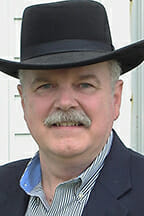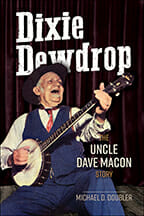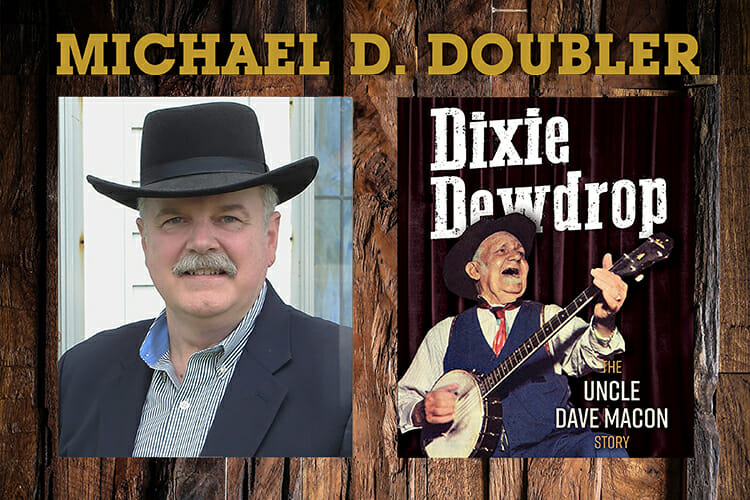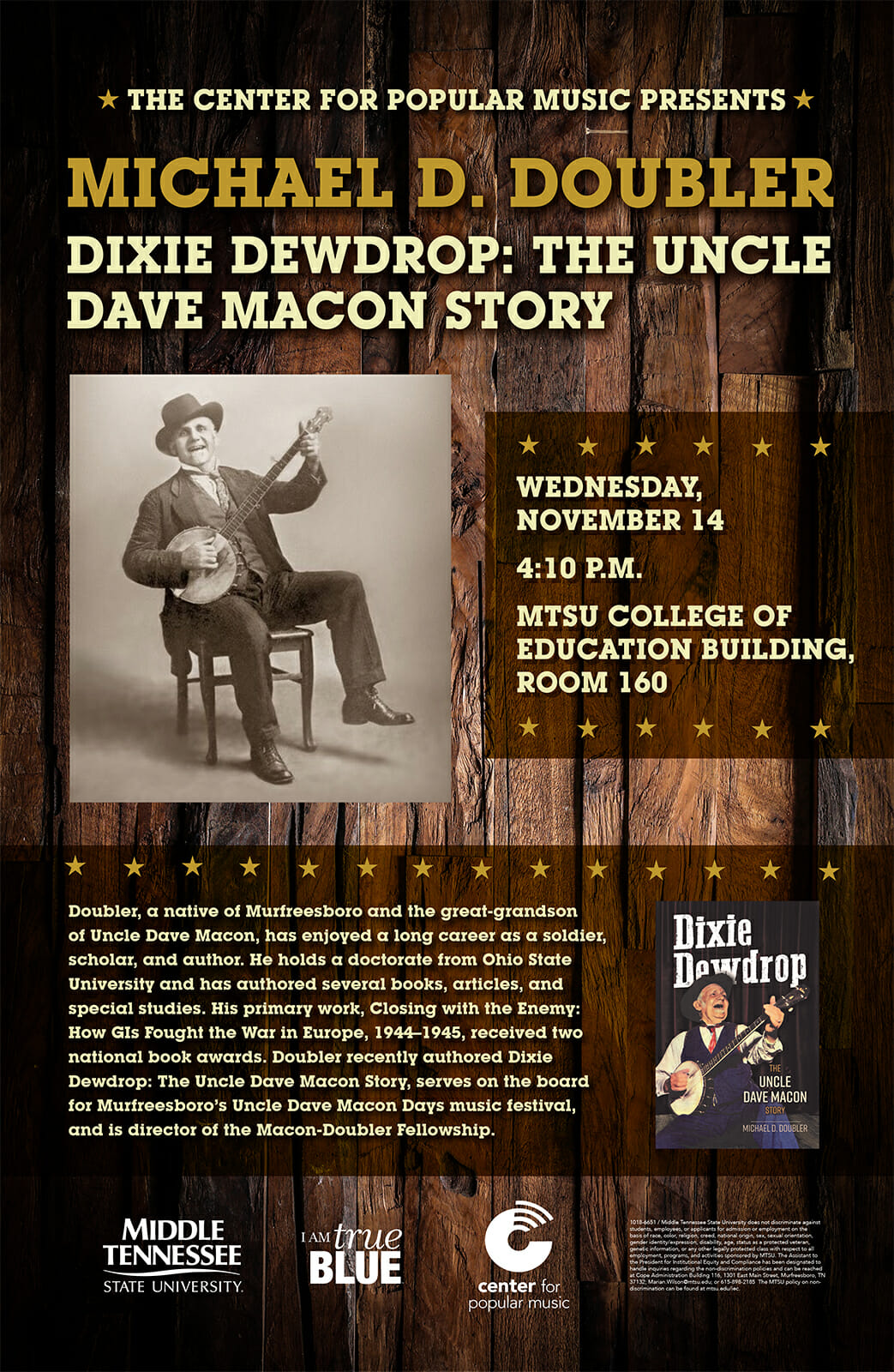Uncle Dave Macon’s music is from another century, yet the showmanship and joy still bursts through, and aficionados still download it 25,000 times a year.
Macon’s great-grandson, author Michael D. Doubler, will share scholarly stories as well as personal and family tales from his new book, “Dixie Dewdrop: The Uncle Dave Macon Story,” to help readers better understand the first Grand Ole Opry superstar when he visits MTSU’s Center for Popular Music on Wednesday, Nov. 14.
Doubler, whose previous books have focused on military history, will speak at 4:10 p.m. Nov. 14 in Room 160 of MTSU’s College of Education building, located at 1820 MTSU Blvd. The talk is free and open to the public.
A parking map is available at http://tinyurl.com/MTSUParkingMap, and off-campus visitors attending the lecture can obtain a special one-day permit at www.mtsu.edu/parking/visit.php.

Dr. Michael Doubler
Doubler’s new book focuses on four factors in his “Pap’s” life: Macon’s love of music, his love for his family, his struggles with alcohol and depression, and his religious faith. Macon learned to play guitar and piano in the family home near Smartt Station, Tennessee, and when the Macons moved to Nashville to run a hotel, then-13-year-old David befriended and learned to play banjo from a circus comedian.
He first performed professionally at age 50; until then, he’d dabbled in music part-time for 30 years, preferring to continue with his successful Rutherford County freight-hauling business and play and sing for his customers as a bonus. Rather than trade in his mules and wagons when trucks became more popular in 1920, Macon closed his business and commenced singing and playing full-time.
He was touring on the vaudeville circuit with fiddler Sid Harkreader and other acts by 1923, appearing on the Opry by 1925 and had already recorded 115 songs of his own by the time the “Bristol sessions” of 1927 vaulted the Carter Family and Jimmie Rodgers to music fame. Macon performed regularly until shortly before his death in 1952, and he was added to the Country Music Hall of Fame in 1966.

 Doubler, whose grandfather, Archie, was the eldest of David and Matilda “Tildy” Macon’s seven sons, holds a doctorate in military history from Ohio State University and is a retired Army National Guard officer.
Doubler, whose grandfather, Archie, was the eldest of David and Matilda “Tildy” Macon’s seven sons, holds a doctorate in military history from Ohio State University and is a retired Army National Guard officer.
He’s a Murfreesboro native, and his books include “Closing with the Enemy: How GIs Fought the War in Europe, 1944–1945” and “Civilian in Peace, Soldier in War: The Army National Guard, 1636–2000.” He also serves on the board for the annual Uncle Dave Macon Days music festival and is director of the Macon-Doubler Fellowship.
The Center for Popular Music at MTSU, a part of the College of Media and Entertainment, is one of the nation’s largest and richest repositories of research materials related to American vernacular music.
Guests who need accommodation to participate in this event should contact the center in advance at popular.music@mtsu.edu or 615-898-2449.
For more information on MTSU’s Center for Popular Music and its projects and special events, visit www.mtsu.edu/popmusic.
— Gina E. Fann (gina.fann@mtsu.edu)



COMMENTS ARE OFF THIS POST